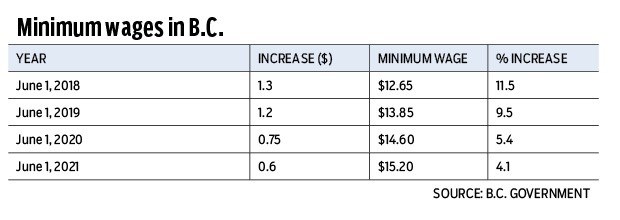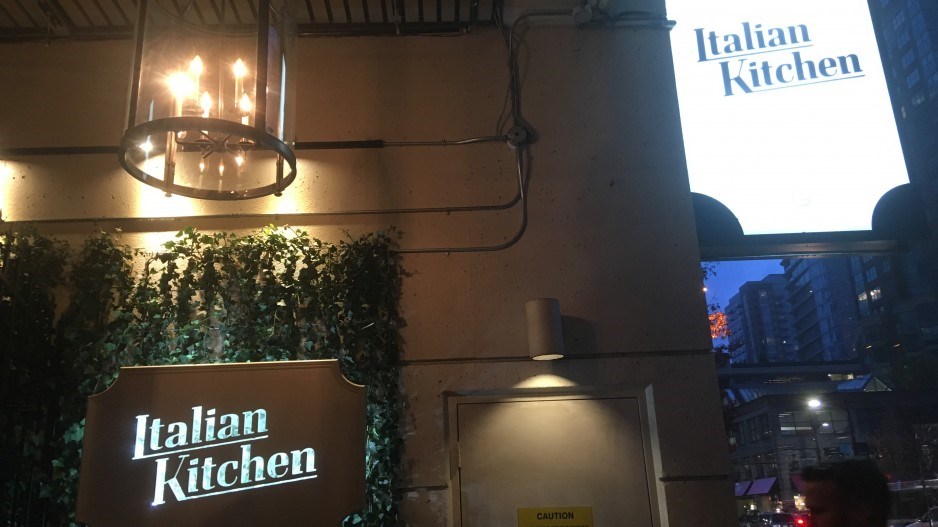B.C.’s plan to hike the province’s minimum wage by more than 11%, to $12.65 per hour, on June 1, and to $15.20 by June 1, 2021 – 34% more than it is now – has restaurateurs considering raising prices, particularly considering that the provincial government also intends to introduce a new payroll tax for small businesses.
Municipal governments, such as the City of Vancouver, are also hiking property taxes.
“If the wages go up, that money has to come from somewhere,” said Glowbal Restaurant Group owner Emad Yacoub, whose 10 restaurants include three branded Trattoria and others under brands such as Glowbal restaurant, Coast and Italian Kitchen.
“We were making 5% on the bottom line and now we’re running around 3%,” Yacoub said. “We can’t go below that number or we’ll go into bankruptcy. Pricing has to go up for the product.”
Yacoub pays chefs and other kitchen workers about $14 per hour, or well above the current minimum wage, and those wages are also supplemented with a portion of the tips that customers give servers.
He pays his servers $10.10 an hour, or $1.25 less per hour than the minimum wage, because the government allows employers to pay those who serve alcohol a lower wage to account for tips.
Even with that reduced wage, his servers are some of the highest-paid workers at his restaurants, with take-home pay in the $30-to-$45-per-hour range, Yacoub said.
A government commission is studying the practice of allowing servers, and some other workers, to be paid below the provincial minimum wage, and it is expected to release a report in March with a recommendation on whether that practice should be allowed to continue.

While workers’ advocates such as BC Federation of Labour president Irene Lanzinger want to eliminate the exemptions from the minimum wage that now include restaurant servers and farm workers, Yacoub said servers’ minimum wage should be lower, as it is in many U.S. states.
Puerto Rico and 17 U.S. states require that restaurateurs pay tipped employees only the $2.13 federal minimum wage while 26 other states allow restaurateurs to pay tipped employees a rate lower than the state’s official minimum wage.
Fast-food operators are also considering raising prices or allowing the added expenses of a higher minimum wage to cut into operating margins.
Fatburger Canada owner Frank di Benedetto told Business in Vancouver that reducing staff hours and laying off workers would be “counterproductive” because it would hurt the quality of service at his restaurants. It is for that reason that he is also not planning to install touch-screen kiosks.
“Whether a price increase would occur, it will certainly be considered but only in the context of offsetting some costs, not entirely eliminating additional costs,” he said.
A&W Food Services of Canada Inc. president and chief operating officer Susan Senecal similarly told BIV that she does not favour cutting staff levels or hours.
And while her chain has some self-serve kiosks, she said that the point of using that technology is customer convenience, not necessarily to cut costs.
The result is that her chain will either maintain the status quo or incrementally raise prices as a result of a higher minimum wage, she said. •




